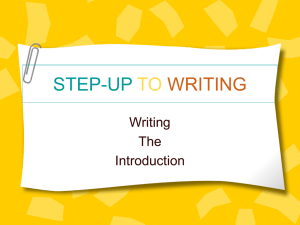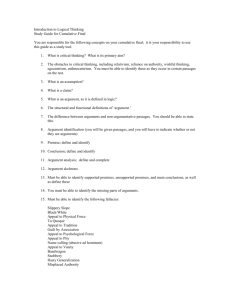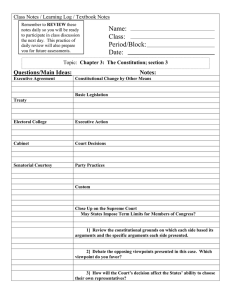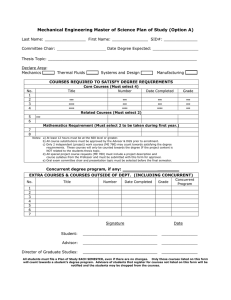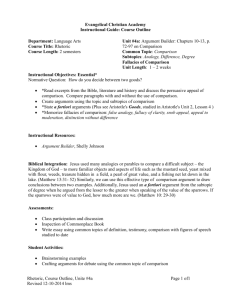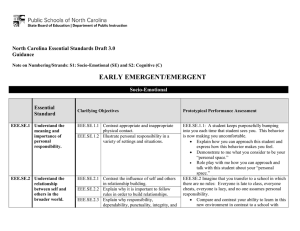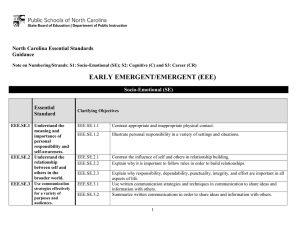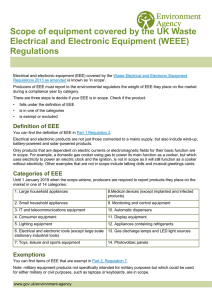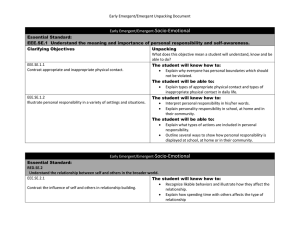Persuasive Essay
advertisement
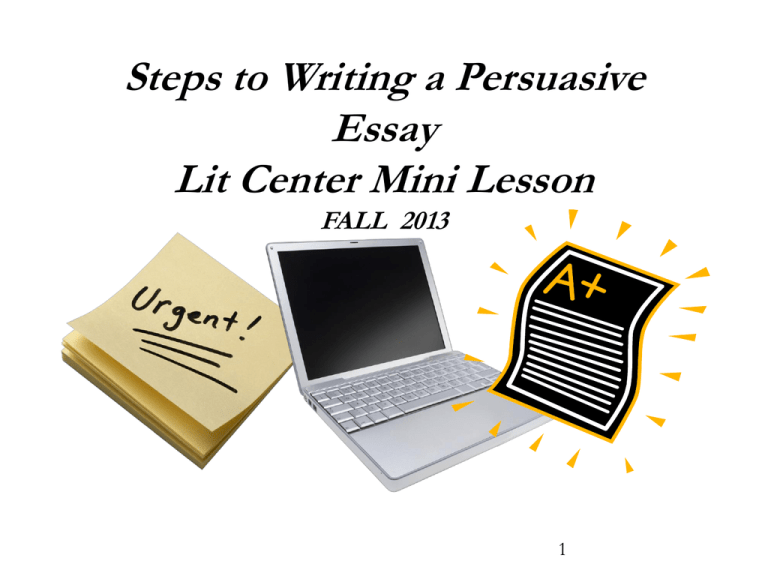
Steps to Writing a Persuasive Essay Lit Center Mini Lesson FALL 2013 1 COMMON CORE STANDARD: PERSUASIVE-OPINION WRITING GRADE 2 • Write opinion pieces in which they introduce they introduce the topic or book they are writing about, state an opinion, supply reasons that support the opinion, use linking words (e.g., because, and, also) to connect opinion and reasons, and provide a concluding statement or section. 2 COMMON CORE STANDARD: PERSUASIVE-OPINION WRITING GRADE 7 • Write arguments to support claims with clear reasons and relevant evidence. – Introduce claims, acknowledge and address alternate or or opposing claims (counterarguments), and organize the reasons and evidence logically, using accurate, credible sources, and demonstrating an understanding of the topic or text… 3 COMMON CORE STANDARD: PERSUASIVE-OPINION WRITING Grades 11-12 • Write arguments to support claims in an analysis of substantive topics or texts, using valid reasoning and relevant and sufficient evidence… • Use specific rhetorical devices to support assertions (e.g., appeal to logic through reasoning; appeal to emotion or ethical belief; relate a personal anecdote, case study, or analogy… 4 Read the prompt and highlight key words. Sample Prompt: The local school board will meet to vote on increasing graduation requirements to include one additional history-social science course and one additional course of English composition, both of which must be passed with a minimum grade of C. Advance placement students will be exempt from this requirement. Topics: Think RIGOR-RELEVANCE 5 You may want to teach students using the following suggestions and guidelines as you guide them towards independent writing (and writing-on-demand) for the opinion pieces and persuasive writing required in the Common Core Standards K-12. Writing is expected to become more complex as students move up the grades, so be sure all students understand the basic elements needed for their arguments and opinion pieces at each grade level. 6 Make an advantages (pro) and disadvantages (con) list. Note: Being aware of both sides of an issue allows the writer to be better prepared to address opposing arguments. Actually make a written list or T Chart 7 T Chart Example Positives GPA CAHSEE ✚ Missing units ✚ Happy parents ✚ Graduate with class I Negatives Free time Time for sports Time for job Homework Time in classroom Pissed off parents 8 Commit to a position. Highlight it Choose the best ideas from the list Prioritize/number them in order. Save the strongest argument for last. 9 Commit to a position/prioritize Positives GPA 5 CAHSEE 2 ✚ Missing 3 units ✚ Happy 6 parents ✚ Graduate 1 With class Negatives Free time Time for sports Time for job Homework Time in classroom Pissed off parents 10 10 Write an occasion/position statement (topic sentence)…… what you are writing about reason (occasion) what you are going to prove (position) 11 Example occasion/position statement: I would like to address the School Board with my belief that the additional requirements for graduation would only benefit all students in achieving higher academic proficiency. 12 Occasion/Position Statement Counter Argument Transition Reason Detail Fact Example, Evidence, Explain EEE Transition Reason Detail Fact EEE EEE Transition Reason Detail Fact EEE EEE Conclusion: Restate topic/Summary of Reasons Emotional or Logical Appeal 13 Revise—is the strongest argument or idea used last for impact? Adjust transitions. Reword to avoid redundancy. Consider the word choice of the conclusion. Write a rough draft using the GYR format as a guide. Edit for conventions 14 Revise the content: Refer back to prompt. Refer back to original list of reasons. 15 Prepare the final presentation Notes: Upper grades add a powerful statement as part of the introductory statement which includes a counter-argument that shows awareness opposing points of view. Each TYGR makes a paragraph—indent! 16
